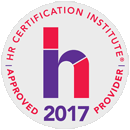Said succinctly, RapidBI explains that OD's focus is on improvement via ". . . a complex strategy intended to change the beliefs, attitudes, values, culture and structure of organizations so that they can better adapt to new technologies, markets, and challenges." It's about performance improvement.
What's the correct job title for such a person? Perhaps we should look to a job description site for the right fit. However, job search expert, Ed Han, as well as many of his advocates, recommends creating your own title that describes who you are and what you do. Now there's a challenge. Aptly admitted by David Wride, OD is not the same as HR. The waters are pretty murky. It isn't about recruiting and hiring yet it's associated with making certain you've got the right input that will result in the optimal output for the organization.
However, I'm getting away from the mission of this writing. The focus is why this OD consultant loves the hybrid HR/recruiting work. Still, the fundamentals of OD dive deep into the necessity to research and analyze what's happening before implementing any form of change that's intended to improve the organization in regard to its people, its culture, its product and brand, and its overall effectiveness and profitability.
First, There's the Legal Aspect
Our legal system has various entities that strive to exact fairness among the participants in the "marketplace." With regard to labor and employment, especially those who have differences, the Equal Employment Opportunity Commission (EEOC) and the National Labor Relations Board (NLRB in relation to union issues) provide guidance. However, there are other entities and there are federal as well as state laws that guide what are the proper practices. There is also case law that serves as guidance. When trying to determine what is happening and how to best address the situation, it's a good idea to research what the actual rules are and how they're applied in order to reach the best outcome. It's important to know not only the "how" but the driving force of "why" in order to come to a best possible solution. The law is the orderliness of all things; it's the rule book that helps keep things in order.
The Seldom Discussed Issue: Compliance
After knowing where to find the rules, and then forming an accurate interpretation of what they are, when they're applied, and the effect on the situation, it's important to make certain there's adherence to them. It makes for a greater amount of sanity in the environment.
To be certain, compliance is not a matter of "you must not do" as much as making certain the playing field is as open to all participants as possible while protecting many of the interests involved. The OD consultant is not only helpful with regard to compliance matters, the OD consultant finds the empowerment that is buoyed through adhering to the rules - or at least understands why those rules work toward a betterment of the situations that arise and need to be addressed before they become the tempest.
Ethics in the Mix
Still part and parcel with regard to the law and compliance is the matter of ethics. Ethics examines the fairness of matters, given the circumstances. Ethics relates to the proper way of doing things so that the organization and those who are part of it are putting forth reliable end product. Ethics is about being held accountable for what is related to proper governance.
"Is it ethical?" may be the driving question. However, researching, understanding, and knowing the answer, based on the law, is an exciting asset.
Workplace Culture and Morale
Examination of the workplace, all of it, is critical to producing the most desirable end product, whether goods or services. Sometimes it only takes a quick immersion into the workplace to become aware of where the strengths and where the weaknesses reside. Poor workplace culture results in poor morale. Those two aspects combined spell a high turnover rate and employment (not to mention product) costs that are inflated while offering poor return on investment (ROI). They also mean a workplace that is in a constant state of churn - and possibly disarray and confusion.,
Being part of the means of finding solutions is also exciting. Setting the proper tone, as well as providing equity among the participants, respecting them as individuals whose differences have value to the overall health of where they are, is so critical. It is also a brand magnet because customers and clients are immediately struck by the health of the organization; it drives their decisions about repeat business.
Training and Development
Is the universe expanding to an infinite point or is it expanding to a predictable distance only to collapse back onto itself? That same question can be posed to an organization. Are the members of it in a state of expanding their knowledge and skills, constantly offered the opportunity to continue to grow? In the alternative, are the members of the organization allowed to reach a particular plateau and then find themselves in a persistent vegetative state until they die, retire, or just become so obsolete that they're terminated? I like the idea that the universe is expanding into yet undiscovered areas. Organizations and people should follow that prescription - in a constant state of growth and being revived and renewed by the advances in knowledge, through the use of ever-improving technology and tools.
The Bottom Line
There's so much more to be said about the OD consultant, especially with regard to Title VII Diversity and Inclusion. However, the bottom line is OD is not really recruiting. It isn't even an actual part of HR. Instead, it's that vitally necessary middle ground that helps to bring those two functions together to form the best possible performance at many levels and in innumerable ways.
Resources:
- Organization Development, Wikipedia
- organizational development OD, Mike Morrison, RapidBI (29/09/2007)
- What is Organization Development?, Organization Development Network
- What is Organization Development? (video), Organization Development Network
- What’s the Difference Between Human Resources and Organizational Development?, Matthew Wride, DecisionWise (May 16, 2017),
- Assessment and Diagnosis for Organization Development: Powerful Tools and Perspectives for the OD Practitioner
- Organization Development: A Practitioner's Guide for OD and HR



